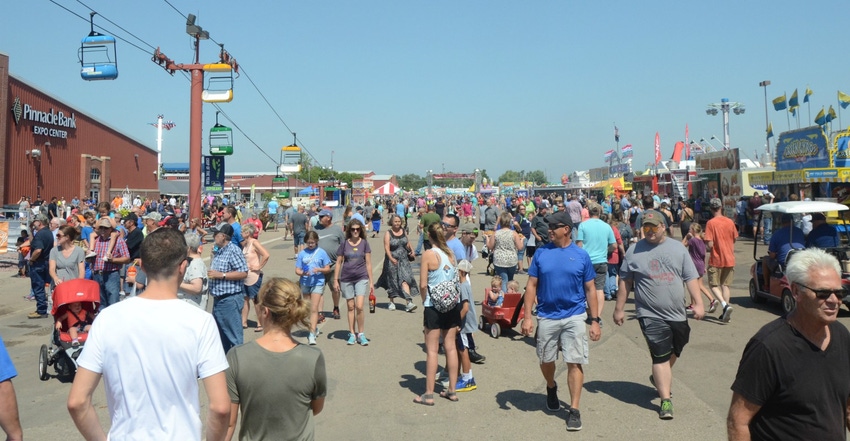
From a young age, Bill Ogg was showing horses and cattle in 4-H, and then moving on to production ag-related Supervised Agricultural Experiences for FFA — all while growing up in the Bighorn Basin in northern Wyoming.
“I was very active as a youth, and exhibition and participation at the county fair level, at the Washakie County in Worland, Wyo. The annual highlight was the chance to participate in the Wyoming State Fair,” Ogg says. “I was fortunate enough to grow up on a farm with sugarbeets and other row crops. I won a trip to the Western National 4H Roundup for my sugarbeets as a youth. There were crop and livestock SAEs, and many other judging contests and speech contests.”
Ogg, who officially became the new executive director of the Nebraska State Fair on June 22, has managed a number of ag-related fairs and events throughout his career. Most recently, he managed Walla Wall Fair and Frontier Days — a regional event covering six counties in eastern Washington state and one county in Oregon.
Long list of fair experience
After Ogg attended graduate school at Louisiana State University, a position as manager of the Wyoming State Fair opened up, drawing him back to his home state.
“I was finishing up grad school, and looking to migrate back northwest. A short period of time into the job, I fell in love with the work as a vocation, and I became a fair junkie,” Ogg says.
Since then, he’s managed the Montana State Fair; Kansas State Fair; Greeley Stampede in Greeley, Colo.; Walla Walla Fair and Frontier Days; and now, the Nebraska State Fair.
“Nebraska has always been a really outstanding Midwestern fair. There’s stable funding here, which is so critical. Fairs typically aren’t profit centers. The community has to provide some support. If a fair can be operationally self-sufficient, that is a success,” he says.
“It’s a prestigious event, well-respected by the people of Nebraska,” he adds. “I grew up in and worked in Wyoming and at the Wyoming State Fair, and certainly visited western Nebraska fairs a number of times. And we would travel to the Nebraska State Fair in Lincoln and always admired the people’s allegiance and love for this institution.”
Nebraska’s fair ‘unique’
Ogg says there are also a number of components that make the Nebraska State Fair a unique event — many of them related to agriculture and natural resources.
“I think there’s a genuineness here that more Nebraskans recognize the importance of agriculture and its impact on everyone’s life and on our economy and lifestyle,” Ogg says. “If the fair can be a showcase or vehicle to demonstrate and represent that and pursue ag education, which is a critical part of the mission, that’s all the better.”
“Raising Nebraska is very special, and the Nebraska Game and Parks Commission exhibits are important year-round partners. The biggest attraction is the strength of the exhibition, the numbers of competitors. Over 5,000 4-H and FFA members annually compete here. Of the numbers of youth in the state, a high proportion actively come and compete and participate here,” he adds. “FFA and 4-H are very dear to me, and that influence to be able to reach that membership and have a positive impact on that many young people is really exciting.”
Moving forward, Ogg notes his goal is to further boost this emphasis on agriculture.
“If we can continue to educate the American consumer about the sustainability of agriculture and the wholesomeness of our product, I think that’s critically important,” he says.
“I am a student of the fair industry. The more I learn, what really resounds with me is how much more I need to learn,” he says. “While I humbly bring a significant amount of experience, I want to learn every day and represent the people of Nebraska to the best of my ability.”
About the Author(s)
You May Also Like






